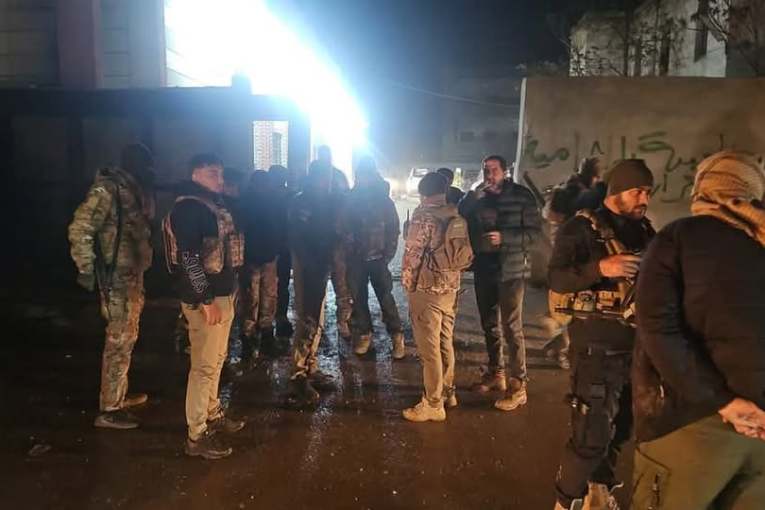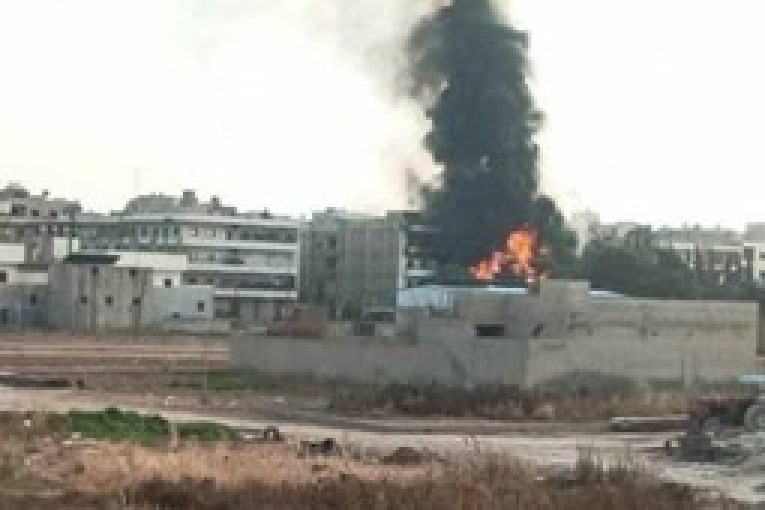
afrinpost- Special
afrinpost met a forcibly displaced family from Afrin, currently living in a forced displacement camp in extremely difficult conditions, and in an initial definition, the head of the family says: My name is Mustafa Sheikho, from the people of the village of Shadere, I am the father of four children, including two suffering from cerebral palsy since their birth, and they are Fatima (22 years old) and Hozan (18 years old), when we were on our land in Afrin, our situation was good and we did not need anyone. We have a financial incoming from the season, and continuous work, and so we were managing our livelihood.
He added: “In our forced exit from Afrin, we faced many difficulties in light of unemployment and the lack of entry to international organizations and the provision of aid to the displaced people of Afrin, and we do not wish that one of the last of these difficulties will live, the tragedy of these two children is difficult to bear as their treatment requires travel to European countries.”
The day of alienation and the departure of tens of thousands of people on foot through the fields, was exceptional in the history of Afrin and constitutes an important part of the memory of the Afrin citizen, and citizen Mustafa recalls that day: “On the day we were displaced from Afrin, we suffered greatly with the condition of these children with the lack of a car and there was no one to help us and carry us, as all the people were busy with their condition, amid the bombing of the Turkish occupation army with planes and shells, and they destroyed our homes, cut down our trees and looted our possessions, leaving nothing behind.
Mustafa recalls: “By a motorbike and from one car to another, with difficulty carrying and transporting my children, I managed to save them from danger, and drove them to the city of Nubl, and there was a checkpoint belonging to the Syrian regime forces. They demanded an amount of 100,000 SYP, so we explained to them our conditions. And that we were displaced to escape the bombing, and we left everything behind, and we do not have money, and that I have two disabled children, except that all of this did not change their mind, on the contrary, they insulted us by speaking, and they gave us the choice between paying the money or returning from where we came, to the place of the bombing, so we had to pay to cross the checkpoint. ”
Certainly, the displacement camp is not a substitute for the homeland, and there are no sources of livelihood in it, and the need for assistance is dire, as displacement is a transition from sufficiency to need, and Mustafa says: “We are now in al-Shahba and there is no source of livelihood, and there are no organizations that contribute to our assistance, and a lot of the doctors in Syria confirmed that there is no cure for this disease in the region, which requires travel for treatment outside the country.
The wife shares her husband’s suffering and perhaps the burden on her shoulders is greater, and she says in a bold tone: “My name is Siham Alloush. I am their mother. In the morning I wake up to bring them milk and change their clothes. Under these circumstances, with the days of winter, the lack of resources and the lack of fuel, the suffering increases. And the mother concludes with just a wish: “I hope that international and humanitarian organizations, and everyone who hears my voice, will help us to provide treatment and aid to these disabled people.”
The family of Mustafa Sheikho is one of thousands of stories, and the Afrini memory has become today a storehouse of tens of thousands of pain stories that need help and support, and they will remain without treatment, unless they returns to his home and the occupation ends.






